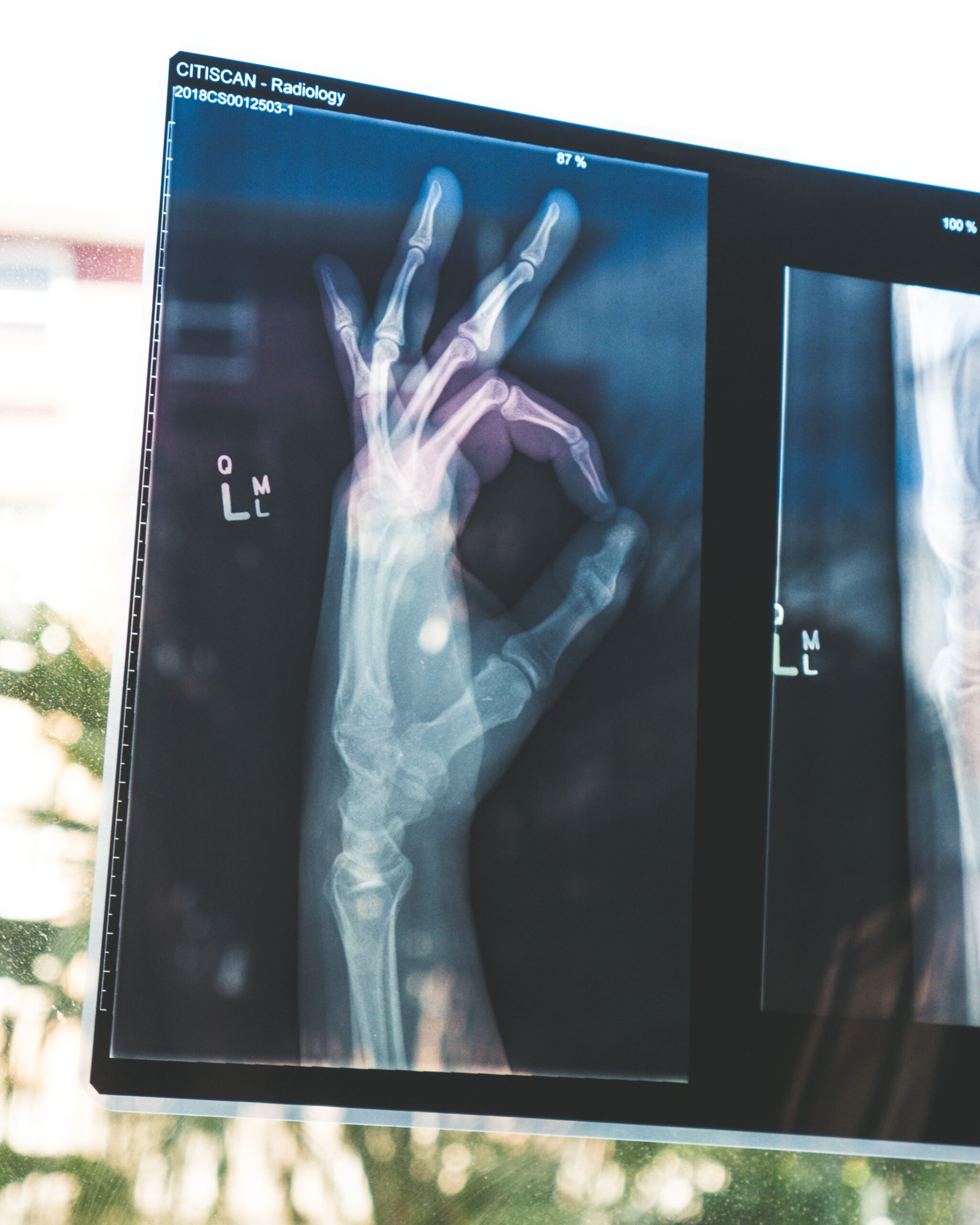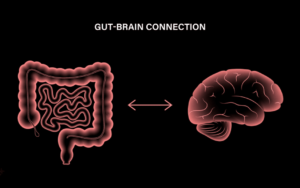Building Strong Bones: The Key Nutrients and Lifestyle Factors

Strong bones are the foundation of a healthy and active life. They provide essential support, protect vital organs, and serve as a reservoir for minerals. Throughout our lives, bone health plays a crucial role in overall well-being and longevity. Building and maintaining strong bones is not only important during childhood but remains vital in every stage of life to prevent bone-related issues later on.
In this comprehensive guide, we will explore the key nutrients and lifestyle factors that contribute to building and maintaining strong bones. From childhood to adulthood and beyond, we will delve into the science-backed strategies for promoting optimal bone health. By understanding the essential components of bone health and implementing practical tips, you can take proactive steps to support your skeletal system and enjoy a life of strength and vitality.
So, let’s dive into the world of strong bones and uncover the secrets to lifelong bone health.
Understanding Bone Health
Before we delve into the specific nutrients and lifestyle factors that contribute to strong bones, it’s essential to understand the basics of bone health. Bones are dynamic tissues that undergo a continuous process of remodeling, which involves the breakdown of old bone tissue and the formation of new bone. This process is regulated by various factors, including hormones, vitamins, and minerals.
1. Bone Composition
Bones are composed of a dense matrix of collagen fibers, which provide flexibility and strength, and minerals, such as calcium and phosphate, that give bones their hardness. This combination of flexibility and hardness allows bones to withstand everyday stresses and prevent fractures.
2. Bone Development and Growth
Bone development begins during fetal development and continues through childhood and adolescence. During these growth phases, bones undergo rapid growth and mineralization, leading to an increase in bone density and size. The majority of peak bone mass, which is the highest bone density a person can achieve, is typically reached by early adulthood.
3. Bone Remodeling
Throughout adulthood, bone remodeling is an ongoing process that involves the removal of old bone tissue (resorption) by cells called osteoclasts and the formation of new bone tissue (formation) by cells called osteoblasts. This remodeling process ensures that bones maintain their strength and repair any microdamage that may occur due to daily activities.
4. Factors Affecting Bone Health
Several factors can impact bone health throughout life. Some of the key factors include:
4.1. Nutrition
Proper nutrition is crucial for bone health, as certain nutrients play a central role in bone formation and mineralization. Calcium, phosphorus, vitamin D, vitamin K, magnesium, and protein are among the essential nutrients required for maintaining strong bones.
4.2. Physical Activity
Weight-bearing exercises and resistance training stimulate bone formation and help maintain bone density. Regular physical activity is essential for promoting bone health and reducing the risk of osteoporosis.
4.3. Hormones
Hormones play a critical role in bone health. Estrogen and testosterone, for example, have a protective effect on bone density. As hormone levels fluctuate during menopause and aging, bone loss can occur.
4.4. Age
As we age, the rate of bone remodeling tends to slow down, leading to a gradual decline in bone mass. This makes older adults more susceptible to osteoporosis and fractures.
4.5. Lifestyle Choices
Certain lifestyle choices, such as smoking and alcohol consumption, can negatively impact bone health and increase the risk of fractures.
5. Bone Health and Aging
As we age, maintaining bone health becomes increasingly important. Age-related bone loss can lead to conditions like osteoporosis, a condition characterized by low bone mass and increased fracture risk. Osteoporosis is a significant public health concern, particularly among older adults, as fractures can lead to decreased mobility, reduced quality of life, and increased healthcare costs.
Key Nutrients for Strong Bones
A well-balanced diet that provides essential nutrients is crucial for maintaining strong and healthy bones. The following nutrients play a significant role in bone health:
1. Calcium
Calcium is one of the primary minerals found in bones and is essential for their strength and structure. It is crucial for bone mineralization, where calcium and other minerals form a dense matrix, giving bones their hardness. Insufficient calcium intake can lead to reduced bone density and increase the risk of fractures, especially as we age.
Sources of calcium include dairy products such as milk, yogurt, and cheese, as well as leafy green vegetables, almonds, and fortified plant-based milk alternatives.
2. Vitamin D
Vitamin D plays a critical role in calcium absorption, making it essential for bone health. Without sufficient vitamin D, the body cannot absorb calcium efficiently, leading to weakened bones and an increased risk of fractures.
The primary source of vitamin D is sunlight, as the skin can synthesize vitamin D when exposed to sunlight. Additionally, fatty fish, fortified dairy products, and supplements are other sources of vitamin D.
3. Magnesium
Magnesium is another essential mineral for bone health, as it aids in the activation of vitamin D, which, in turn, helps with calcium absorption. Magnesium also plays a role in bone formation and influences bone density.
Sources of magnesium include nuts, seeds, whole grains, leafy greens, and legumes.
4. Vitamin K
Vitamin K is necessary for the activation of proteins that regulate calcium in bone and other tissues. It helps to bind calcium to the bone matrix, contributing to bone strength.
Leafy green vegetables, such as spinach and kale, are rich sources of vitamin K.
5. Protein
Protein is a crucial component of bone tissue and is necessary for bone growth and repair. Adequate protein intake is vital for maintaining bone mass and preventing bone loss.
Good sources of protein include lean meats, poultry, fish, dairy products, legumes, and nuts.
6. Phosphorus
Phosphorus works alongside calcium to form hydroxyapatite crystals, which give bones their structure and strength. It is a fundamental mineral for bone mineralization.
Phosphorus is found in a variety of foods, including dairy products, meat, fish, poultry, and whole grains.
7. Vitamin C
Vitamin C is an antioxidant that supports bone health by promoting the formation of collagen, a protein that provides the framework for bone mineralization.
Citrus fruits, strawberries, kiwi, and bell peppers are excellent sources of vitamin C.
8. Zinc
Zinc is a trace mineral that contributes to bone formation and mineralization. It is involved in the synthesis of bone proteins and enzymes necessary for bone metabolism.
Zinc can be found in foods such as meat, shellfish, legumes, and whole grains.
9. Vitamin B12
Vitamin B12 is essential for bone health as it aids in bone-building processes and helps maintain bone density.
Animal products such as meat, fish, and dairy are primary sources of vitamin B12.
10. Vitamin A
Vitamin A is involved in bone cell activity and supports the remodeling process that maintains bone integrity.
Foods rich in vitamin A include sweet potatoes, carrots, spinach, and dairy products.

Lifestyle Factors for Strong Bones
In addition to a nutrient-rich diet, several lifestyle factors can contribute to building and maintaining strong bones. Adopting these habits can complement the effects of a bone-supportive diet and promote overall bone health:
1. Regular Weight-Bearing Exercise
Weight-bearing exercises involve activities that make your bones and muscles work against gravity. These exercises stimulate bone growth and help maintain bone density. Some examples of weight-bearing exercises include walking, jogging, dancing, and hiking. Additionally, resistance exercises, such as weightlifting and bodyweight exercises, can also be beneficial for bone health.
2. Muscle-Strengthening Activities
Strong muscles are essential for supporting and protecting your bones. Engaging in muscle-strengthening activities, such as resistance training, helps enhance muscle mass and strength, reducing the risk of falls and fractures.
3. Adequate Sunlight Exposure
Vitamin D is crucial for calcium absorption and bone health. Getting enough sunlight exposure on your skin can help your body produce vitamin D naturally. Aim for around 10 to 30 minutes of sunlight exposure on your arms, legs, or face at least twice a week. However, the ability to produce vitamin D from sunlight can vary depending on factors such as skin color, geographic location, and season.
4. No Smoking and Alcohol Consumption
Smoking can have detrimental effects on bone health. It reduces bone density, impairs bone healing, and increases the risk of fractures. Therefore, avoiding smoking or quitting if you are a smoker is essential for maintaining strong bones.
Similarly, alcohol consumption can weaken bones and increase the risk of fractures.
5. Maintaining a Healthy Body Weight
Maintaining a healthy body weight is essential for bone health. Both being underweight and overweight can negatively impact bone health. Underweight individuals may have reduced bone density, while excess body weight can put extra stress on bones, increasing the risk of fractures. Strive to maintain a healthy weight through a balanced diet and regular exercise.
6. Fall Prevention
Falls can be a significant risk, especially for older adults, and may result in bone fractures. To prevent falls, take steps to make your home environment safer, such as removing tripping hazards and installing grab bars in bathrooms. Additionally, wearing appropriate footwear and using assistive devices, if needed, can help reduce the risk of falls.
By incorporating these lifestyle factors into your daily routine, you can optimize your bone health and reduce the risk of bone-related issues.
Building Strong Bones at Different Life Stages
Building and maintaining strong bones is a lifelong process that begins during childhood and continues into adulthood. Here’s how you can focus on bone health at different stages of life:
1. Childhood and Adolescence
1.1. Proper Nutrition
During childhood and adolescence, bones are still developing and growing. Adequate nutrition is critical during this period to support optimal bone formation and density. Ensure that children and teenagers consume a balanced diet rich in calcium, vitamin D, and other essential nutrients for bone health.
1.2. Physical Activity
Encourage children and teenagers to engage in regular physical activity, including weight-bearing exercises and sports. Activities like running, jumping, and playing sports can help build strong bones and improve bone density.
1.3 Calcium and Vitamin D Supplements
In some cases, children and teenagers may require calcium and vitamin D supplements, especially if their diet lacks these nutrients or if they have specific health conditions that affect nutrient absorption.
2. Adulthood
2.1. Continue with a Bone-Supportive Diet
As you age into adulthood, it’s crucial to continue following a diet rich in bone-building nutrients. Calcium, vitamin D, magnesium, and vitamin K remain essential for maintaining bone health.
2.2. Weight-Bearing Exercises
Incorporate weight-bearing exercises into your routine, even as you age. Regular physical activity can help preserve bone density and reduce the risk of bone loss.
2.3. Avoid Alcohol and Tobacco
Maintain healthy lifestyle habits by avoiding alcohol consumption and refraining from smoking, as these behaviors can weaken bones and increase the risk of fractures.
3. Menopause and Beyond
3.1. Hormone Changes
During menopause, hormonal changes can lead to accelerated bone loss in women. Hormone therapy may be recommended for some women to help preserve bone density. It’s essential to discuss the risks and benefits of hormone therapy with a healthcare provider.
3.2. Calcium and Vitamin D Intake
Postmenopausal women should pay close attention to their calcium and vitamin D intake. These nutrients continue to be vital for bone health, and supplementation may be necessary if dietary intake is inadequate.
3.3. Strength Training
Engage in strength training exercises to improve bone density and reduce the risk of fractures. Strength training can help maintain muscle mass and bone strength.
4. Older Adults
4.1. Balance and Stability Exercises
For older adults, maintaining balance and stability is crucial for preventing falls and fractures. Incorporate balance exercises into your routine, such as tai chi or yoga.
4.2. Regular Bone Density Tests
As you age, regular bone density tests can help monitor your bone health and detect any signs of bone loss or osteoporosis.
4.3. Consult with Healthcare Professionals
Throughout all life stages, it’s essential to work closely with healthcare professionals to assess and address your bone health needs. They can provide personalized recommendations based on your individual health status and risk factors.
By focusing on bone health at different life stages and implementing these strategies, you can build and maintain strong bones well into your golden years.
Takeaway
Building and maintaining strong bones is a lifelong journey that requires attention and care at every stage of life. From childhood to older adulthood, bone health plays a crucial role in maintaining overall well-being and reducing the risk of fractures and bone-related diseases.
Building strong bones is a lifelong commitment that reaps rewards in the form of better quality of life and reduced risk of bone-related conditions. Prioritize your bone health today to pave the way for a strong and vibrant future.






